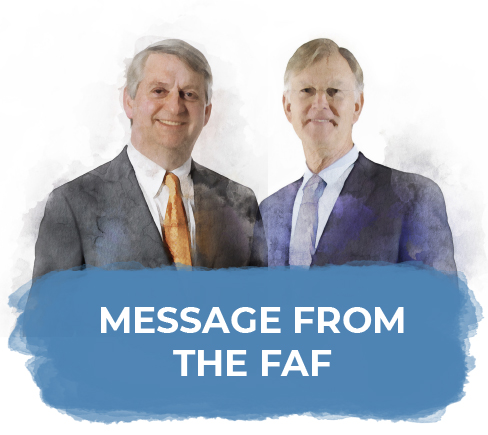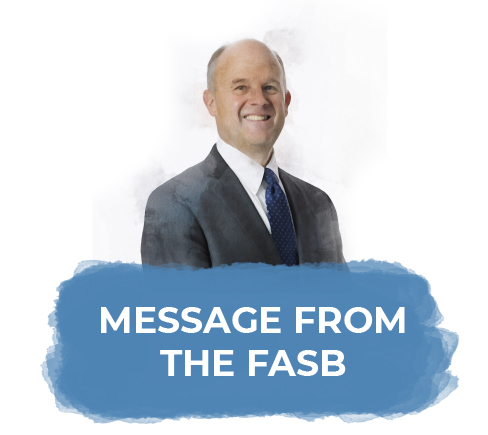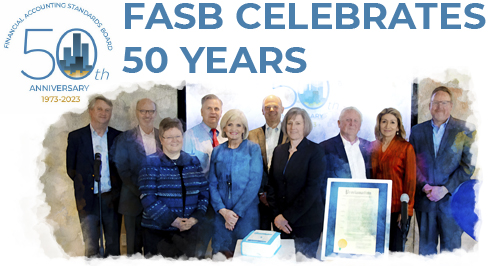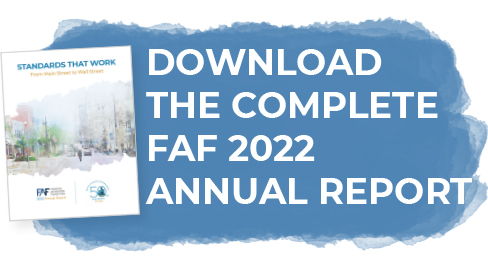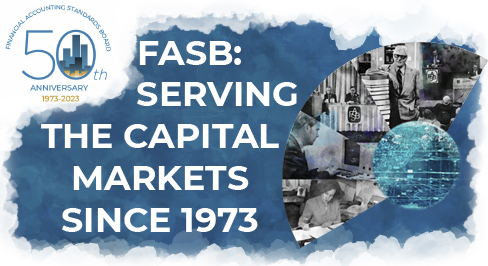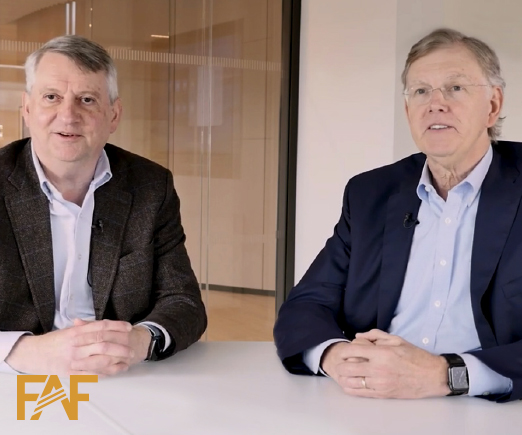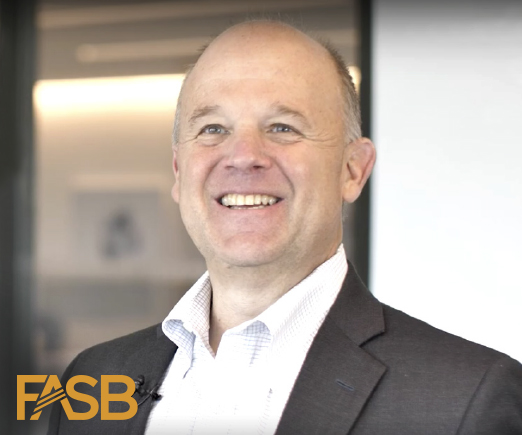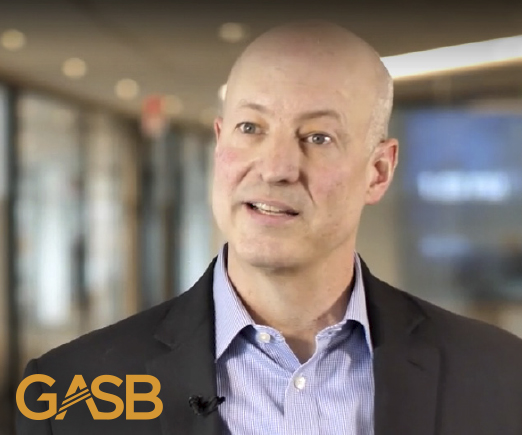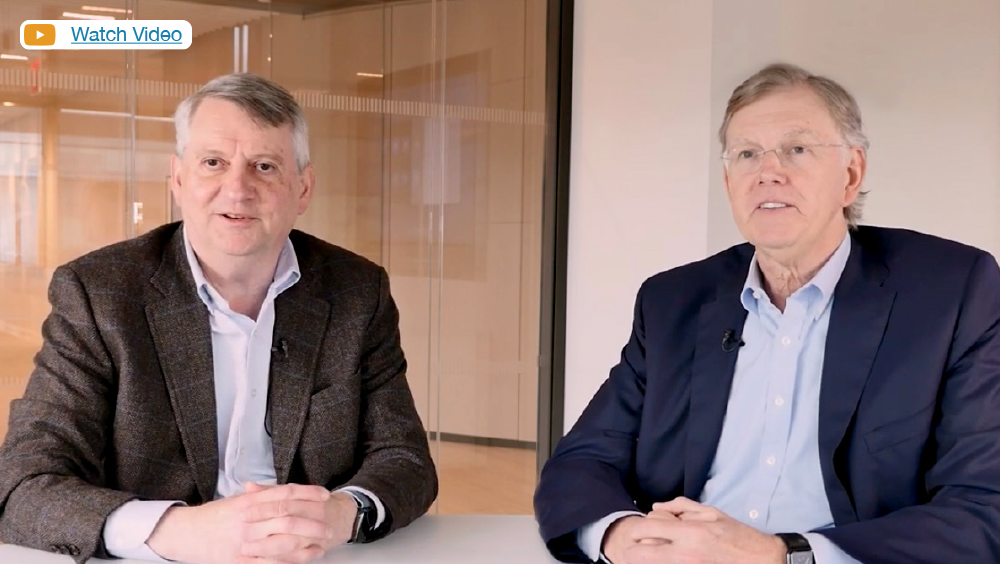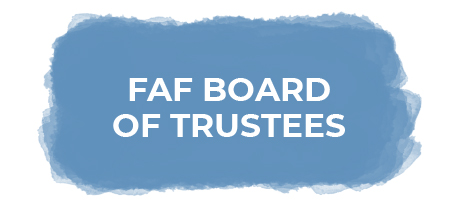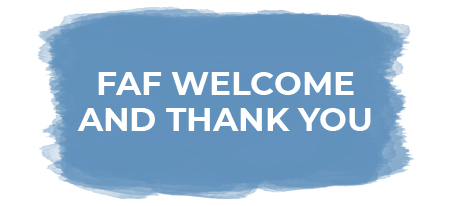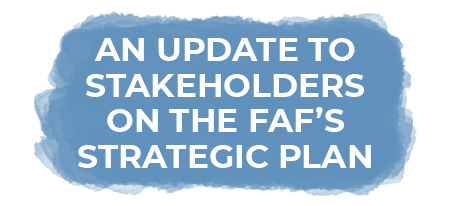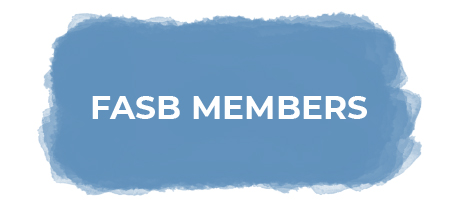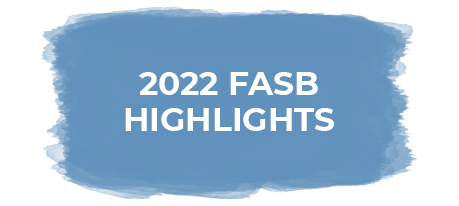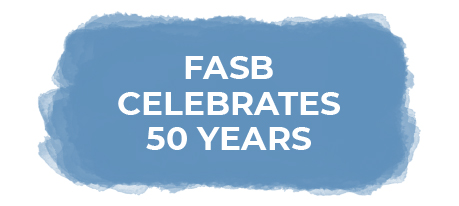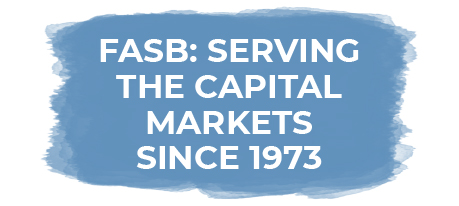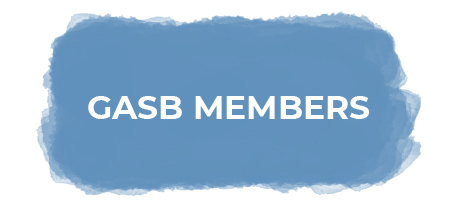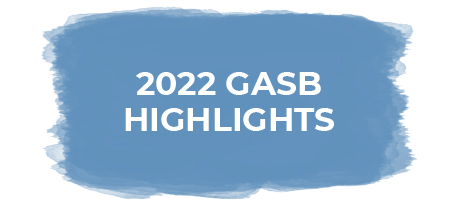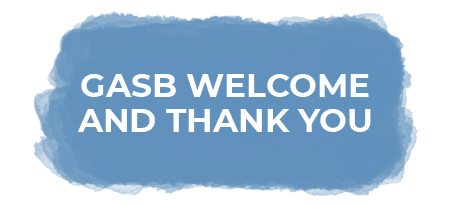FASB: Serving the Capital Markets Since 1973
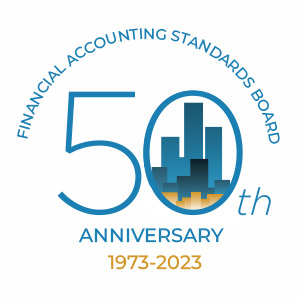
On March 8, 1973, the FASB held its very first meeting—in office space borrowed from the American Thread Company in Stamford, Connecticut. Since then, hundreds of Board and staff members have worked to earn the responsibility entrusted to us: to develop and improve accounting and reporting standards that provide useful information to investors and other allocators of capital.
Each eventful decade presented the FASB with unique opportunities and challenges.
1970s & 80s:
Strengthening the Structure, Perfecting the Process
The FASB builds upon the independent and significantly strengthened organizational structure recommended by the Wheat Committee and sets about engaging a wide range of stakeholders to create a standard-setting process that ensures the Board makes the most informed and objective decisions possible.

1990s:
The Dawn of the Digital Age
As capital markets become more complex, the FASB moves to address the demands of the new digital age.
2000s:
International Collaboration
The FASB and international standard setters work to chart a path towards more comparable accounting standards across the globe against the background of accounting scandals that shake the capital markets.

2010s - Present:
Emerging Issues and Beyond
FASB issues three major standards developed in tandem with the IASB, provides accounting support during worldwide pandemic and emerges with an investor-driven agenda that addresses the highest priorities of our stakeholders.
FASB Celebrates 50 Years

In 2023, the Financial Accounting Standards Board (FASB) celebrates 50 years of standard setting. We dedicate this milestone to you and to all our stakeholders, past and present, from Main Street to Wall Street, whose participation in the standard-setting process has been essential to building the strong body of Generally Accepted Accounting Principles (GAAP) that exists today.
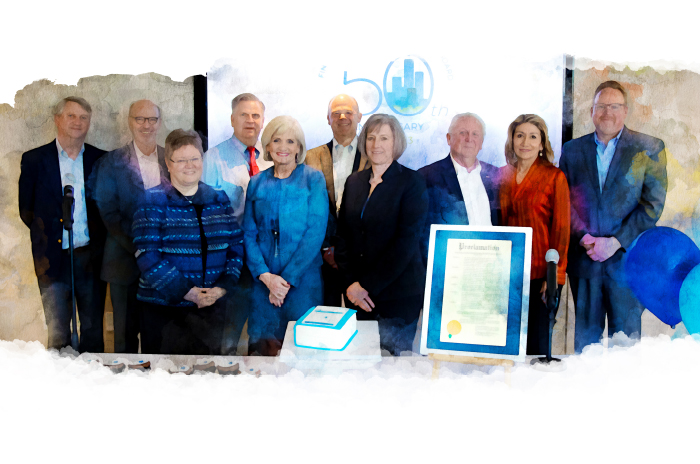
The FASB was presented with a proclamation from the city of Norwalk, Connecticut to mark its 50th anniversary.
Pictured from left to right:
John W. Auchincloss, Executive Director of the FAF; FASB Members FredCannon and Marsha Hunt; FASB Vice Chairman Jim Kroeker; FASB Member Christine Botosan; FASB Chair Rich Jones; FASB Member Sue Cosper; The Honorable Mayor of the City of Norwalk, Harry W. Rilling and Lucia Rilling; and Greater Norwalk Chamber of Commerce President and CEO, Brian Griffin
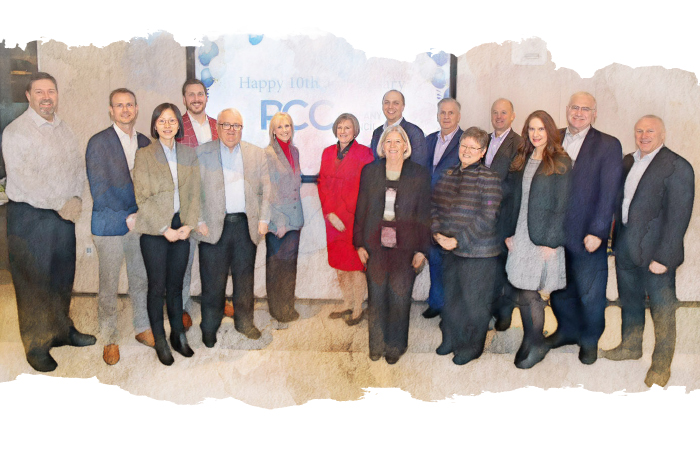
In late 2022, the Private Company Council (PCC) marked its 10th anniversary as the primary advisory body to the FASB on private company matters. The PCC continues to provide critical insights on private company financial reporting issues.
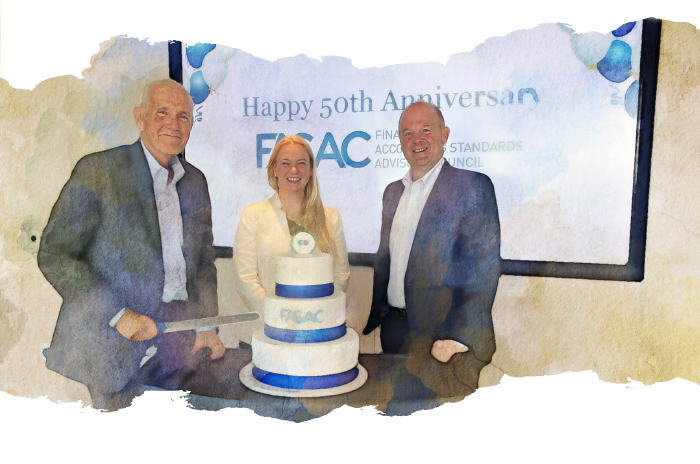
In 2023, the Financial Accounting Standards Advisory Council (FASAC) celebrated the 50th anniversary of its first meeting. The Wheat Committee—the study group that recommended the creation of the FASB in the early 1970s—also recommended the creation the FASAC to advise the FASB on its agenda topics and priorities. Five decades later, the FASAC continues to play an important role in helping the FASB carry out its mission.
Over the years, the FASB has engaged thousands of investors and other users of public company, private company, and not-for-profit financial statements, as well as preparers, auditors, and academics for input on projects and initiatives.
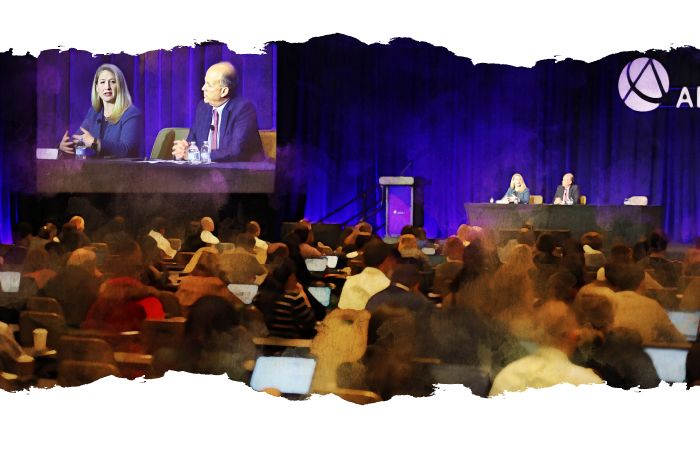
Rich Jones and Hillary Salo provided a comprehensive overview of the FASB’s current and upcoming projects at the 2022 AICPA and CIMA Conference on Current SEC and PCAOB Developments.
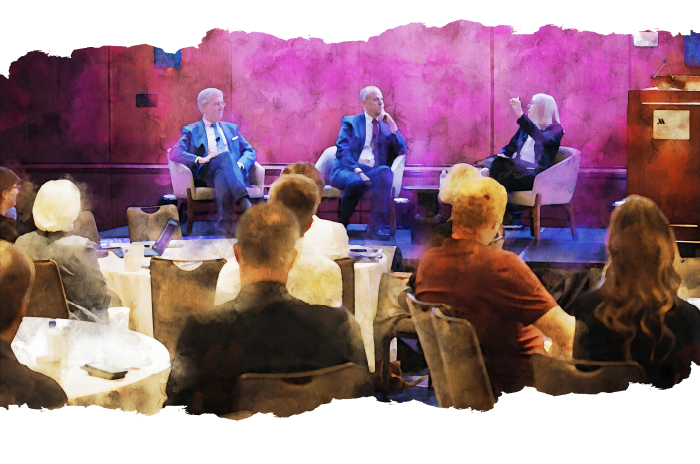
The “Accounting for an Ever-Changing World” was a joint conference held by the FASB, the International Accounting Standards Board (IASB), and The Accounting Review (TAR)—a publication of the American Accounting Association (AAA). The event took place November 2-4, 2022 in New York City. The conference fostered dialogue between the academic community and accounting practitioners to share insights on issues that are important to the field of accounting.

The conference featured a robust roster of speakers, including Paul Munter, Acting Chief Accountant of the U.S. Securities and Exchange Commission, FASB Chair Rich Jones, and IASB Chair Andreas Barckow.
Standards That Work
From Main Street to Wall Street

The Financial Accounting Foundation (FAF) strives to provide effective, efficient, and appropriate stewardship of the Financial Accounting Standards Board (FASB) and the Governmental Accounting Standards Board (GASB) and to assist them in their respective missions, focused on establishing and improving high-quality financial accounting and reporting standards that provide useful information to investors, and other users of financial reports, and improving all stakeholders’ understanding of these standards and preparers’ ability to implement them effectively.
Under the FAF’s bylaws, its role within its oversight responsibilities is clear, the FAF takes care not to impair the independence and objectivity of the respective Boards in making their standard-setting decisions. The FAF and the Boards maintain alignment through constant dialogue and the shared commitment to serve the needs of all stakeholders.
Our Mission
Our mission is, through governance and oversight, to ensure that the Financial Accounting Standards Board and the Governmental Accounting Standards Board fulfill their respective missions that are focused on establishing and improving high-quality financial accounting and reporting standards that provide information useful to investors and other users of financial reports, and improving all stakeholders’ understanding of those standards and preparers’ ability to implement them effectively.
- The FASB and the GASB (the Boards) set standards through a process that is robust, comprehensive, and inclusive.
- The FAF Board of Trustees provides oversight and promotes an independent and effective standard-setting process.
- The FAF management provides strategic counsel and services that support the work of the standard-setting Boards and Board of Trustees.

An Update To Stakeholders On The FAF's Strategic Plan
In November 2022, the FAF Trustees approved the final version of the FAF’s strategic plan, which articulates the mission, vision, values, and key strategic goals that will be the focus of FAF’s work for the next several years. As many stakeholders expressed interest in our progress on these goals, we plan to publish updates about the strategic plan each year in our annual report.
Only a few months have elapsed since we formalized the plan, and we are pleased with how quickly we have been able to move forward on some of our top priorities. As time passes, we will be able to provide more comprehensive updates, but some early activities are listed below.
GOAL #1
In service to the public interest, promote the importance of independent standard setting to capital markets
- New FAF Chair Ed Bernard has started a comprehensive listening tour to connect with many of the organizations representing important stakeholder groups. One of Ed’s key messages in these meetings is to reinforce the importance of the independent standard-setting process to capital markets and the public at large.
- We are improving our governance processes to bolster accountability, transparency, and independence. In February 2023, we announced we will begin to livestream portions of the FAF Trustees’ Oversight Committee meetings with the FASB and GASB chairs to provide greater transparency of the oversight process.
GOAL #3
Incorporate new and further embrace existing technologies to make the standard-setting process more effective and productive, from initial stakeholder input through the delivery and consumption of standards
- We officially launched the final phase of our new publishing platform for FASB and GASB standards in February 2023 and have committed to ongoing technology investments for this year and beyond. Among the key technology enhancements planned, we will further modernize our new technology platform to support how our accounting standards are created and published, and we will embark on a redesign of our websites to improve navigation and make it easier for stakeholders to get the information they need more rapidly.
GOAL #4
Build on our commitment to greater diversity, equity, and inclusion
- FAF has signed on as a formal sponsor of Accounting+, an effort led by the Center for Audit Quality to enhance awareness among minority high school and college students of the accounting profession as an attractive career path. We are also increasing our investment in Diversity, Equity, and Inclusion (DEI) training for our employees in Norwalk, Connecticut, and have widened our traditional recruiting efforts to include more Historically black colleges and universities (HBCU) when searching for entry-level talent.
GOAL #5
Exhibit Leadership in Global Financial Reporting
- In 2022, we co-hosted an academic conference in New York City alongside the American Accounting Association and the International Financial Reporting Standards Foundation that generated numerous academic papers from the United States, the United Kingdom, Australia, and Canada on critical research topics in accounting standards such as revenue recognition, leasing, and credit losses. We anticipate co-hosting similar international conferences with these partners in the future.

Message from the FAF Chair and FAF Executive Director
Dear Stakeholders,
We marked the 50th anniversary of the Financial Accounting Foundation (FAF) in 2022. The Foundation was created in 1972 following the recommendations of the Wheat Report, named for the chair of the panel that wrote the report, Francis M. Wheat, a former SEC Commissioner. The goal of the Wheat panel was to study the establishment of accounting principles in this country and to make recommendations for improving that process.
Fifty years is a long time in the life of any organization. In our case, it is especially notable because no predecessor group charged with financial accounting standard setting in the United States ever made it much past 20 years before it was dissolved and replaced. Looking back five decades on, it is safe to say the visionaries who crafted the Wheat Report got it right.
But what are the elements of the “it” that Wheat and his colleagues perceived? We think there are a few major ones:
- Independence: Rather than placing the Financial Accounting Standards Board (FASB) and, later, the Governmental Accounting Standards Board (GASB) inside a government agency, where political pressures might degrade the quality of accounting standards, Wheat and his colleagues recommended that standard setting remain in the private sector under the supervision of an independently appointed group of FAF Trustees. This helps ensure the needs of investors and other users of financial statements remain paramount in the standard-setting process.
- Diversity of perspectives: The Financial Accounting Foundation Trustees, the FASB, and the later-formed GASB all comprise professionals from widely different backgrounds and perspectives, reflecting the diverse stakeholders who have an interest in financial accounting standards and the information they produce.
- Accountability: The FASB and GASB have robust rules of procedure incorporated into their extensive, formal due process. The FAF Trustees are charged with holding FASB and GASB members accountable for following their due process and create frequent opportunities for stakeholders to provide meaningful input.
We are honored to carry forward the important role that we have inherited from the FAF leaders who preceded us, even as we lay the groundwork for inevitable changes in financial accounting and reporting in the years ahead. We are acutely aware of the FASB’s unique role as the standard setter for public companies as designated by the U.S. Securities & Exchange Commission, and that of the GASB in setting financial accounting standards for the 50 states and thousands of municipalities.
We put the finishing touches on the new FAF strategic plan in 2022, which identifies six priority goals that we will pursue over the next several years. This plan reflects substantial stakeholder input: hundreds of stakeholders responded to our online survey to identify their priorities; more than 50 participated in face-to-face interviews to illuminate these findings further; nearly 2 dozen sent detailed, thoughtful comment letters in response to the draft plan we issued last summer. We strongly encourage you to download and read the full plan here.
We are confident that focusing our efforts as outlined in our strategic plan will help the FAF—and our standard-setting Boards—remain in the forefront of meeting the needs of investors and our capital markets. Fifty years of success at the FAF and the FASB, and the nearly 40 year record of success at the GASB, happened one day at a time. With humility and seriousness of purpose, we shoulder our daily responsibility to serve our stakeholders and to oversee the independent standard-setting process that is foundational to our market economy.
Thank you for your support and engagement.
Sincerely,
 Edward C. Bernard, Chair
Edward C. Bernard, Chair
 John W. Auchincloss, Executive Director
John W. Auchincloss, Executive Director
A Message from Edward Bernard
I was truly honored last fall to be tapped as the incoming chair of the Financial Accounting Foundation Board of Trustees. As a longtime executive at one of the world’s largest asset managers, I have long admired the work of the Financial Accounting Standards Board and the Governmental Accounting Standards Board. To have a role in the present and future of these important panels is both rewarding and humbling.
To my predecessor in this role, Kathleen Casey, I offer my sincere thanks. Kathy joined the FAF as a Trustee in 2018 and became Board chair in 2020. Her strong leadership through the worst of the Covid crisis was instrumental to the organization’s success in a very challenging time, and she subsequently oversaw the creation of our new strategic plan. She left the organization well-positioned for the future.
As I write this letter, I am already well along in my “listening tour,” meeting with key stakeholders to hear firsthand what they like about FASB and GASB, and where they think we can improve. This has been a fascinating and rewarding experience, and I am eager to continue to meet with our stakeholders for the duration of my tenure. This feedback is essential to the effectiveness of our work and the success of our organization.
Thank you for engaging with us as we recommit to our collective goal to establish and improve financial accounting standards to serve the needs of investors and other users of financial information.
Message from the
FASB Chair
Since the FASB held its very first meeting on March 8, 1973, Board and staff members have worked to earn the responsibility entrusted to us: to develop and improve accounting and reporting standards that provide useful information to investors and other allocators of capital. While much has changed since then, one thing that hasn’t is the importance of your engagement in our process. As we celebrate our 50th anniversary, I want to express my gratitude to all of our stakeholders, past and present, whose input helped shape the robust body of GAAP standards we have today. We dedicate this milestone to you.
In 2022, your input allowed us to complete one of the most comprehensive agenda consultation projects in our history, helping us reshape our technical and research agendas to address issues our stakeholders told us were most important.
We’ve made significant progress on our entire agenda, publishing exposure documents on two of the most frequently cited investor priorities. In March 2023, we issued a proposed standard to improve income tax disclosures, which focuses on enhancements to the rate reconciliation and disaggregation of income taxes paid. Later that month, we published a proposed standard on the accounting for and disclosure of crypto assets that would provide greater transparency into the fair value of crypto assets held by companies. We look forward to discussing stakeholder feedback on both proposals during the second half of 2023.
In March 2023, the Board voted to move forward with an exposure draft addressing one of the most sought-after improvements to financial reporting: disaggregation of certain expense captions. Also, we voted to issue a proposed standard that will address investor requests for improvements to the accounting model for acquired financial assets and we are making good progress on our projects on the accounting for software costs and accounting for environmental credit programs.
In late 2022, the FASB issued a proposal to improve the disclosures about a public company’s reportable segments to provide financial statement users with additional, more detailed information about a reportable segment’s expenses. We are currently working through public comments on the proposal, which would represent the most significant change to segment reporting since 1997.
While 2022 saw us focused on projects identified through our agenda consultation process, we also brought key standards over the finish line. In September, we issued a final standard that provides investors with greater transparency about a company’s use of supplier finance programs by requiring new disclosures intended to help financial statement users better consider the effect of those programs on a company’s working capital, liquidity, and cash flows over time. We also issued a final standard aimed at improving the comparability of fair value guidance for equity securities, as well as new guidance that expands disclosures and improves accounting related to the credit losses standard.
We closed out the year with two more final standards: one that improves certain transition requirements for certain long-duration insurance contracts and one that extends the period of time preparers can use our reference rate reform relief guidance.
We continued to leverage academic research to support our understanding of standard-setting issues. In January 2023, leading academics from around the country shared insights with the Board and staff as part of our annual Financial Reporting Issues Conference. The following month, the FASB and the Chookaszian Accounting Research Center of the University of Chicago Booth School of Business announced a call for papers on the accounting for and disclosure of intangibles, a priority for investors that we’re currently exploring as part of our research agenda. Selected papers will be presented at the first of three co-hosted Emerging Financial Reporting Issues Research Symposia planned for 2024, 2025, and 2026.
Academic research also helped inform our ongoing post-implementation review of the revenue recognition, credit losses, and leases standards. Academics from around the world presented research papers at our November 2022 “Accounting for an Ever-Changing World” conference in New York City. Held in partnership with the International Accounting Standards Board and The Accounting Review (a publication of the American Accounting Association), the event focused on how those standards are performing in the markets. The FASB staff is working through that research to identify potential improvements to the standards.
Finally, we are nearing completion of our Conceptual Framework, an important tool that helps guide the Board’s decisions. In March 2023, the Board voted to issue a final chapter on the reporting entity, with chapters on recognition/derecognition, and measurement targeted by the end of 2023.
Our ability to continue to fulfill our mission relies on your continued engagement in our process. We hope you’ll continue to be a part of this journey by following our work and sharing your input.
Sincerely,

Richard R. Jones, Chair
2022 FASB HIGHLIGHTS
Key Standards Issued in 2022
- Reference Rate Reform (Topic 848): Deferral of the Sunset Date of Topic 848
- Financial Services—Insurance (Topic 944): Transition for Sold Contracts
- Liabilities—Supplier Finance Programs (Subtopic 405-50): Disclosure of Supplier Finance Program Obligations
- Fair Value Measurement (Topic 820): Fair Value Measurement of Equity Securities Subject to Contractual Sale Restrictions
- Financial Instruments—Credit Losses (Topic 326): Troubled Debt Restructurings and Vintage Disclosures
- Derivatives and Hedging (Topic 815): Fair Value Hedging—Portfolio Layer Method
Exposure Documents Issued in 2022
Proposed Accounting Standards Updates
- Leases (Topic 842): Common Control Arrangements
- Business Combinations—Joint Venture Formations (Subtopic 805-60): Recognition and Initial Measurement
- Segment Reporting (Topic 280): Improvements to Reportable Segment Disclosures
- Investments—Equity Method and Joint Ventures (Topic 323): Accounting for Investments in Tax Credit Structures Using the Proportional Amortization Method (a consensus of the Emerging Issues Task Force)
- Financial Services—Insurance (Topic 944): Transition for Sold Contracts
- Reference Rate Reform (Topic 848) and Derivatives and Hedging (Topic 815): Deferral of the Sunset Date of Topic 848 and Amendments to the Definition of the Secured Overnight Financing Rate (SOFR) Overnight Index Swap Rate
Invitation to Comment
- Accounting for Government Grants by Business Entities: Potential Incorporation of IAS 20, Accounting for Government Grants and Disclosure of Government Assistance, into Generally Accepted Accounting Principles
Proposed Statements of Financial Accounting Concepts No. 8
- Conceptual Framework for Financial Reporting—Chapter 5: Recognition and Derecognition
- Conceptual Framework for Financial Reporting—Chapter 2: The Reporting Entity
Message from the
GASB Chair
The Governmental Accounting Standards Board (GASB) served our stakeholders in a variety of critical ways in 2022.
GASB Board members and staff got back on the road to visit stakeholders in person at events across the country. In all, we delivered more than 125 GASB Updates and presentations both in person and virtually. It was great to be with everyone again face-to-face.
To help stakeholders as they go through the process of putting GASB standards into practice, we addressed more than 1,000 questions submitted through our Technical Inquiry System. Questions on accounting for leases, fiduciary funds, and nonexchange transactions led inquiry topics.
In response to other stakeholder questions, in May we posted the white paper: “Intersection of Environmental, Social, and Governance Matters with Governmental Accounting Standards” to the GASB website. The paper provides a detailed overview of the intersection of environmental, social, and governance (ESG) matters with existing governmental accounting standards. It is important to note, this document does not establish or modify Generally Accepted Accounting Principles (GAAP) for state and local governments.
We continued to offer electronic input forms on our proposals to provide a convenient way for stakeholders to share their thoughts with the Board. The GASB recorded a significant uptick in the feedback it received on our June 2022 risk disclosures proposal due to the availability of the electronic input form. We plan to continue to offer this tool going forward.
Developments in High-Quality Standards
The Board developed and improved high-quality accounting and financial reporting standards for U.S. state and local governments by issuing updated guidance on compensated absences, accounting changes and error corrections, and enhanced concepts for note disclosures to the financial statements. We also issued a proposal on governmental risk disclosure and expect to issue final guidance later this year. Each of these areas represents a significant improvement in governmental accounting and financial reporting that will provide users of financial statements with better information in these areas once they are in practice.
State and local governments are dealing with significant resource challenges including workforce shortages. With this in mind, the GASB understands that when we add to or change GAAP, we are adding to those challenges. We will not undertake a project unless the change would represent a meaningful, substantial improvement in governmental financial reporting and those resulting benefits outweigh the costs and burden we are placing on those who have to implement the change.
Internal Improvements
The GASB is also focused on making internal improvements that will lead to enhancements in how we do our work, engage with stakeholders, and in the resources we provide.
Earlier this year, we announced the availability of a new version of the Governmental Accounting Research System™ that is now available free of charge. It features a more modern interface, greatly improved search functionality, and other improvements. Initial feedback on this research tool has been highly positive.
The GASB has increased the resources that we dedicate to monitoring electronic financial reporting so we are prepared to understand and adapt to the continuing evolution of government financial reporting, including those advancements achieved through the use of technology.
We are currently evaluating how we can leverage technology internally to retool the way we conduct research, including around emerging accounting issues. Early this year, we welcomed new Senior Research Manager Tammy Waymire, who will play an important role in that evolution.
Finally, we are preparing to launch a podcast series called Bridging the GAAP that will offer informal discussions of key issues in governmental accounting, including topics I have raised here and others.
Congratulations to the FASB on 50 Years of Setting Standards
Congratulations to the Financial Accounting Standards Board (FASB) on their 50th anniversary of setting high-quality accounting and financial reporting standards.
Not many organizations do what we do. As we prepare to mark the GASB’s 40th anniversary in 2024, I want to highlight how much I appreciate the opportunity to cooperate with and learn from the FASB and see how it approaches what is going on in that environment—even though it may differ from what is going on in ours.
I value discussions with FASB Chair Rich Jones and his team and learning how they think about things and seeing the way their Board operates. I am very grateful for being able to leverage their expertise. Congratulations to everyone at the FASB on 50 years of developing world-class accounting standards.
Thank You to the GASB Staff
I will conclude with a word of thanks to our highly talented and dedicated staff. Not only did they transition past working from home, but they also acclimated themselves to our new offices down the road.
The members of the GASB staff produced all of the achievements I have described above. They make me very proud to be a part of this organization.
Sincerely,

Joel Black, Chair
2022 GASB HIGHLIGHTS
Final Statements and Concepts Statement
- Omnibus 2022
- Accounting Changes and Error Corrections
- Compensated Absences
- Communication Methods in General Purpose External Financial Reports That Contain Basic Financial Statements: Notes to Financial Statements
Exposure Drafts
- Certain Risk Disclosures
- Implementation Guidance Update—2023
 Board of Trustees
Board of Trustees

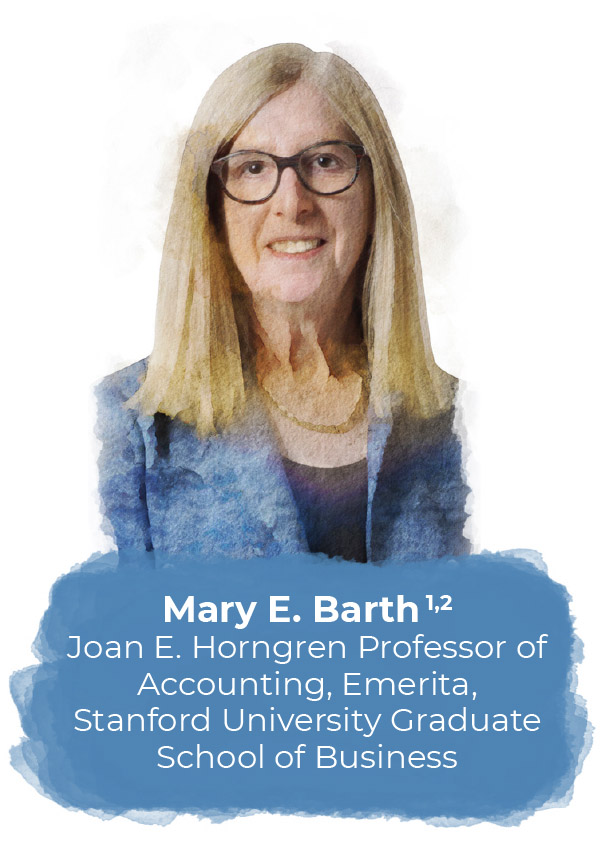
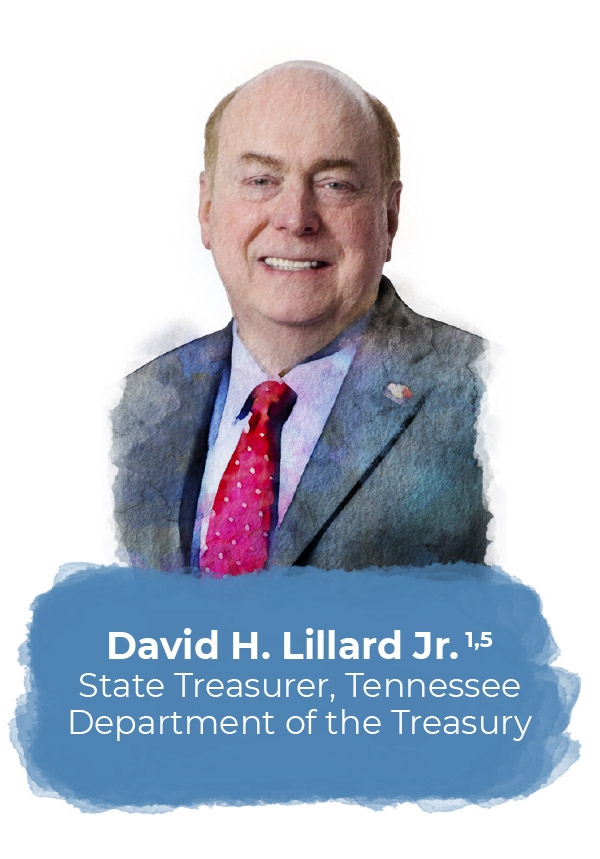
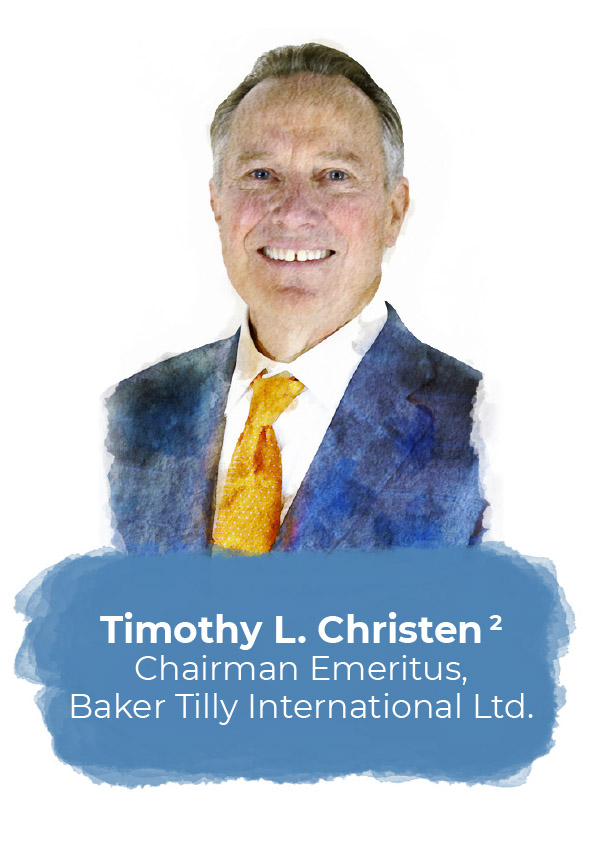
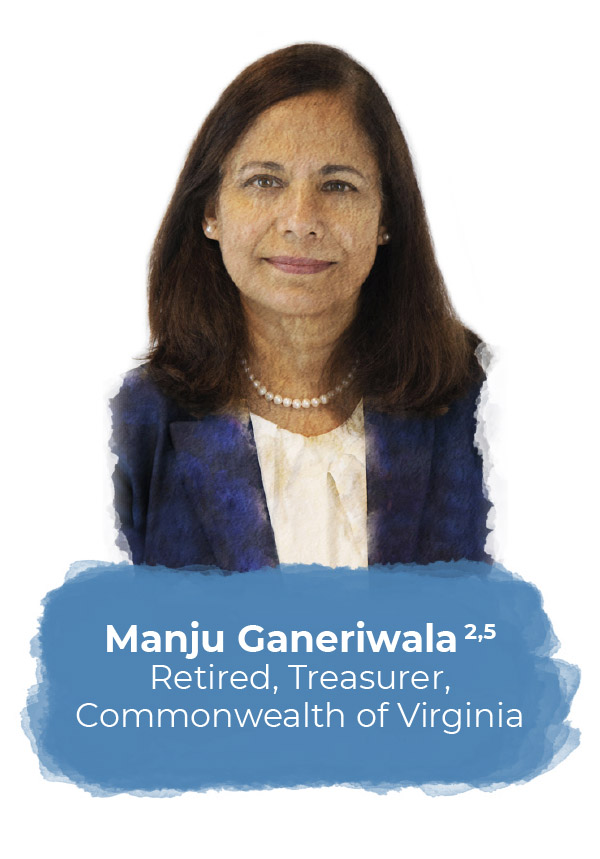



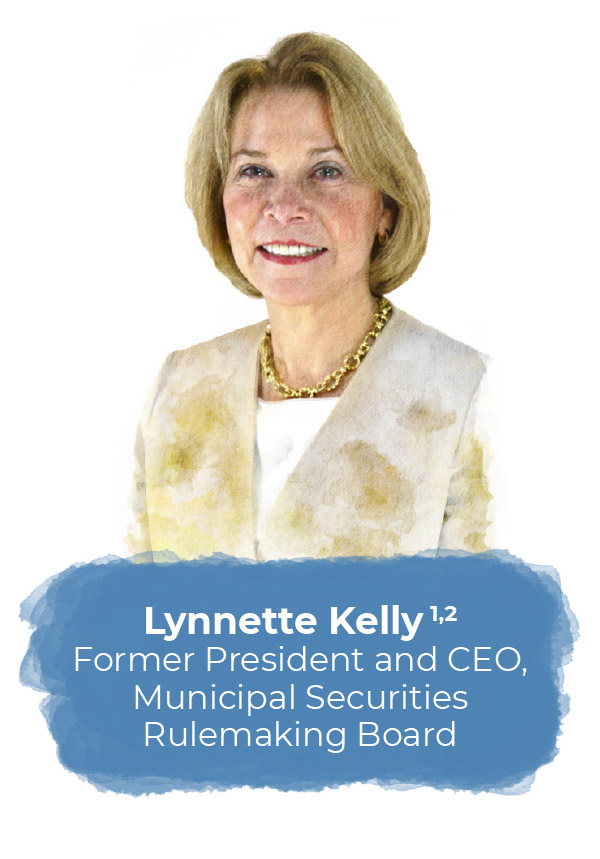
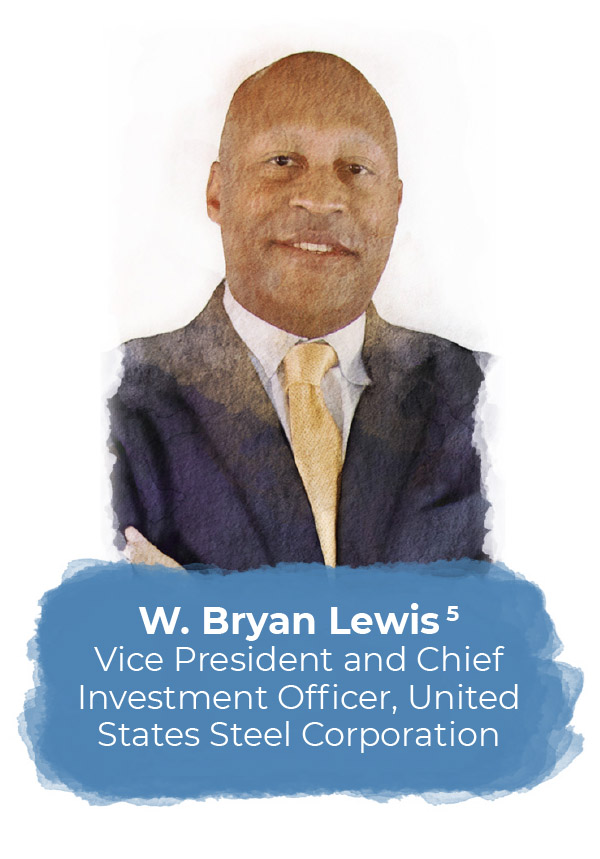
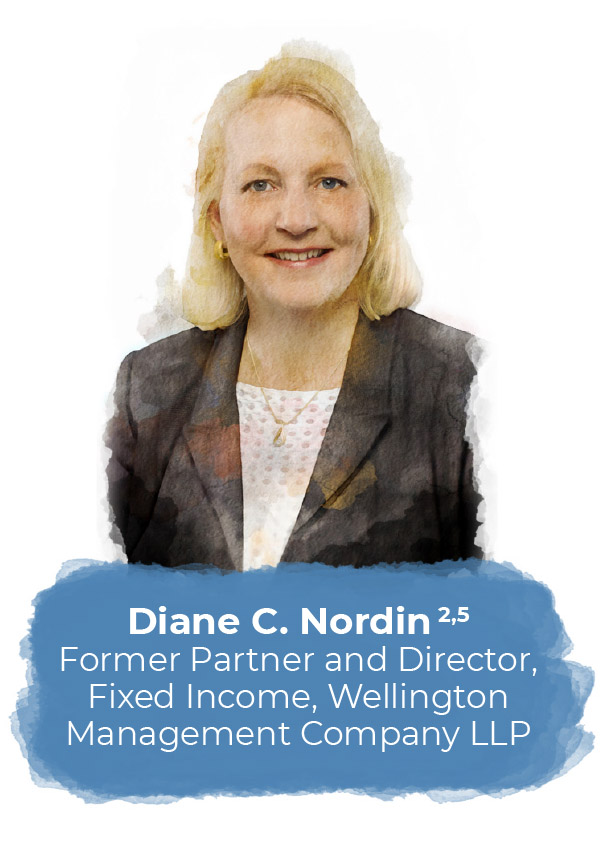
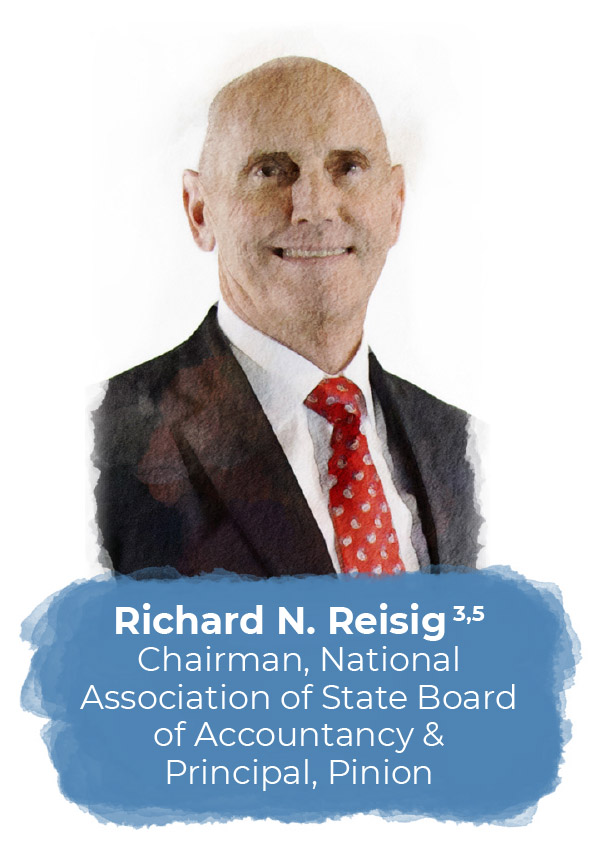

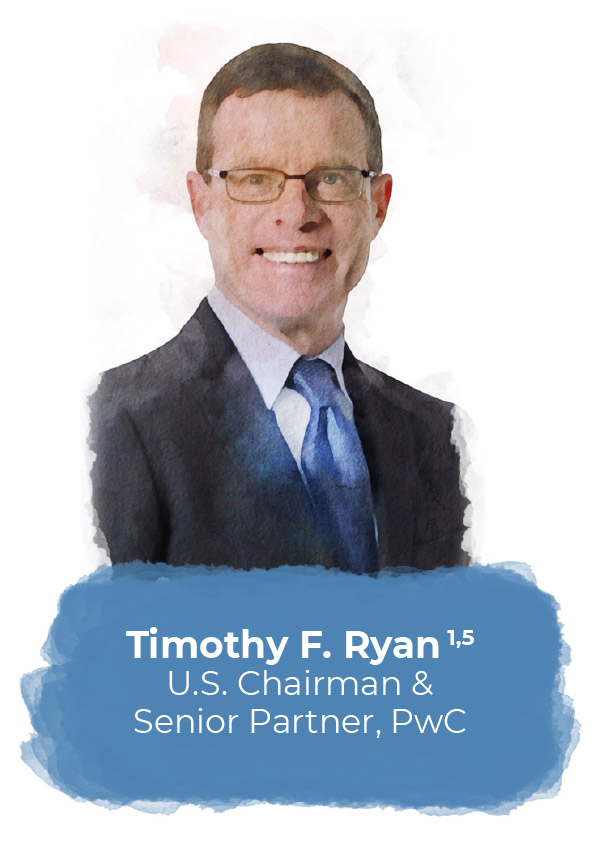
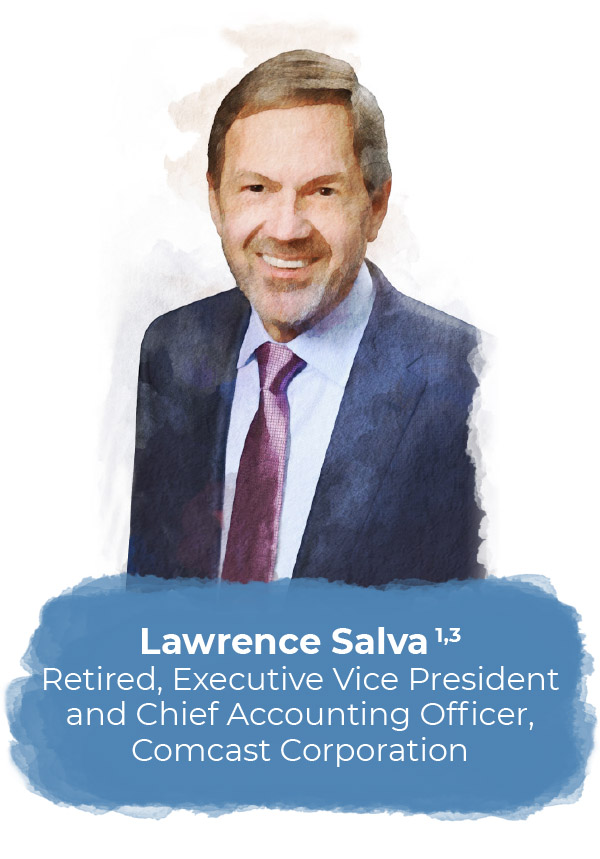
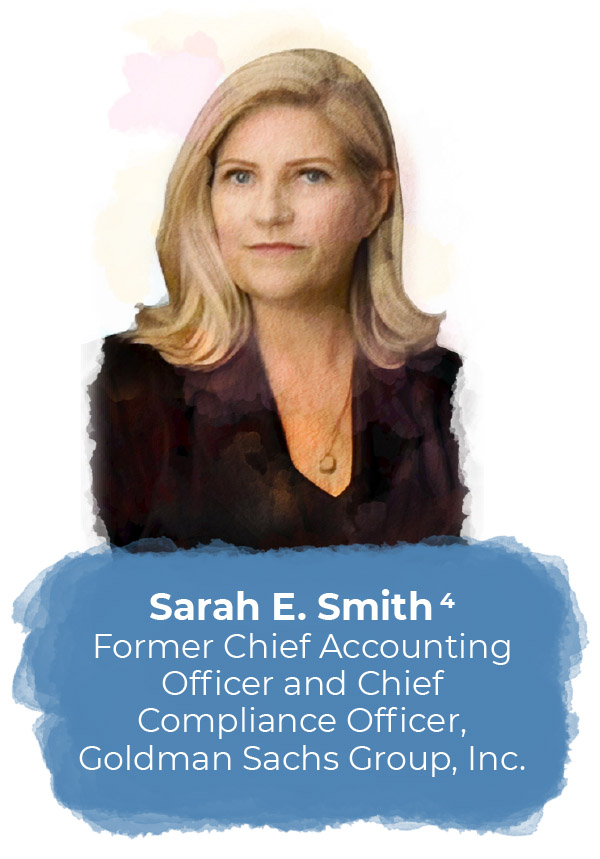
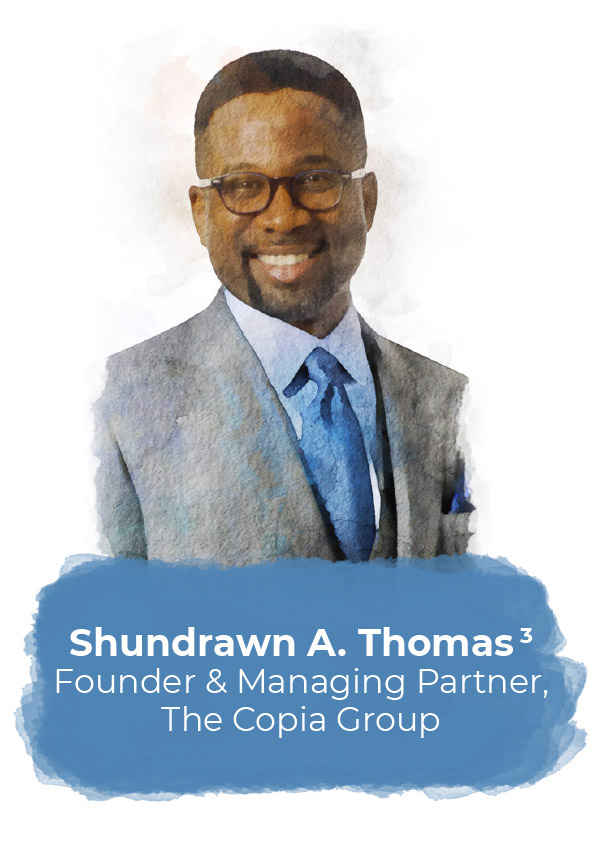
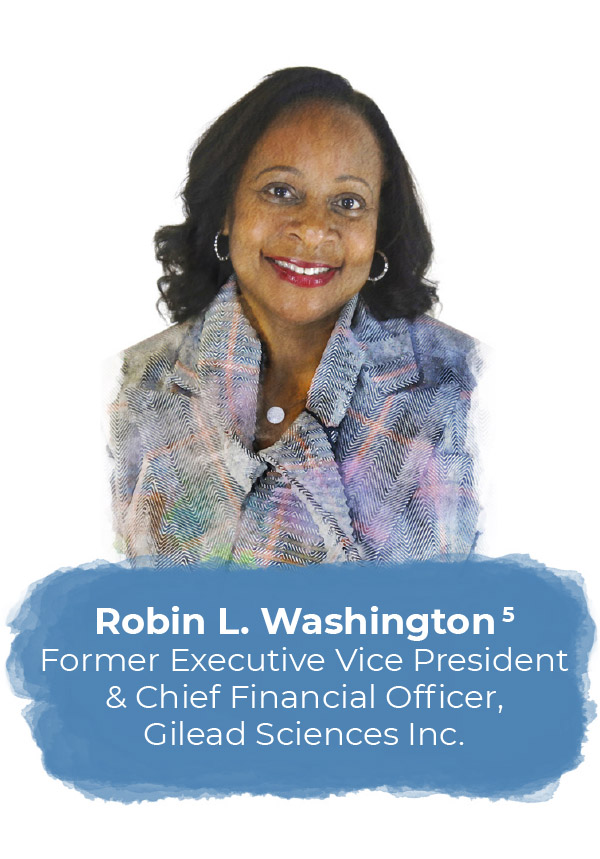
Senior Leadership
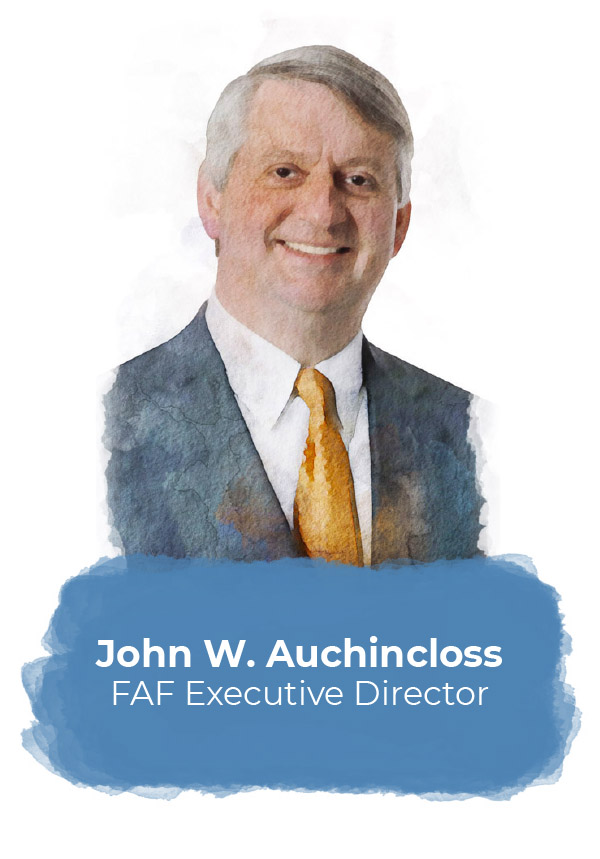
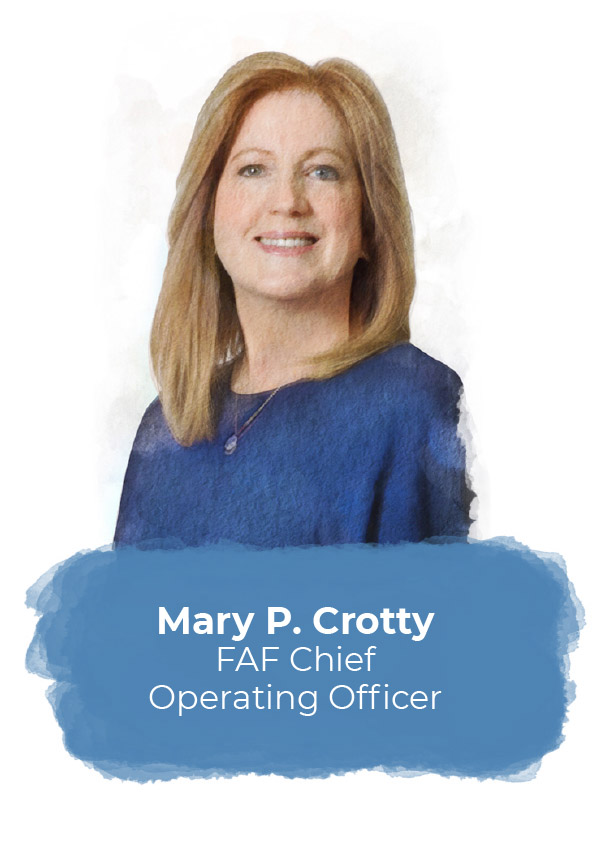
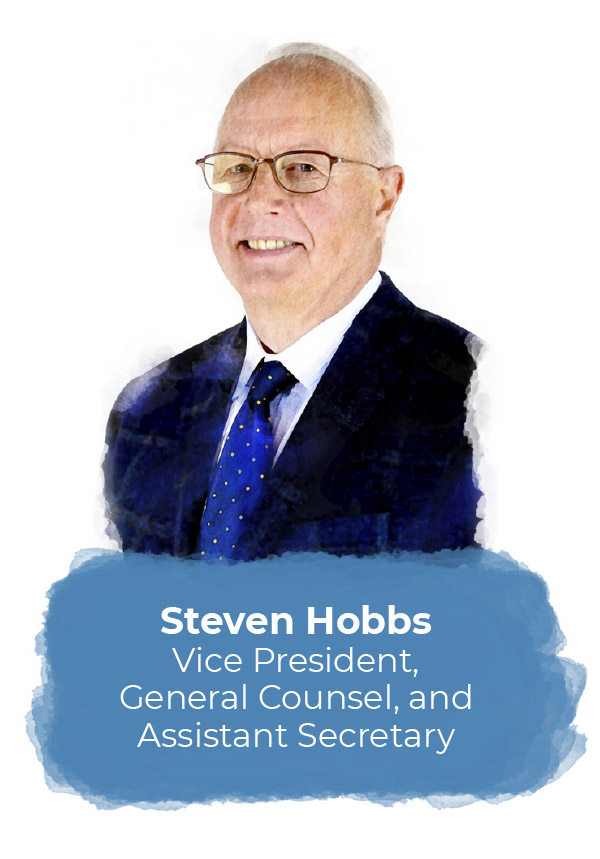
Officers
Chair,
Edward C. Bernard
Vice Chair,
Mary E. Barth
Secretary and Treasurer,
David H. Lillard Jr.
Executive Director,
John W. Auchincloss
Chief Operating Officer,
Mary P. Crotty
Vice President, General Counsel and Assistant Secretary,
Steven Hobbs
Trustee Committees
- 1 Executive Committee
Edward C. Bernard, Chair,
Mary E. Barth, Vice Chair - 2 Appointments Committee*
Lynnette Kelly, Chair - 3 Audit and Finance Committee
Lawrence Salva, Chair - 4 Compensation Committee
Bruce T. Herring, Chair - 5 Standard-Setting Process Oversight Committee
David H. Lillard Jr., Co-Chair,
Timothy F. Ryan, Co-Chair
* Non-committee member governmental Trustees (Marion Gee and David Lillard) serve ex officio on the Appointments Committee when a GASB member appointment is under consideration.
Members of the 
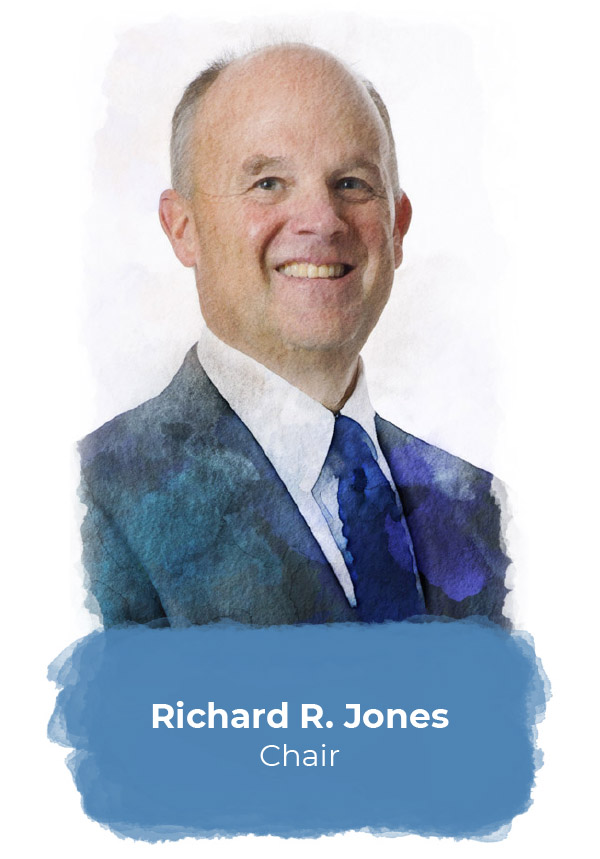
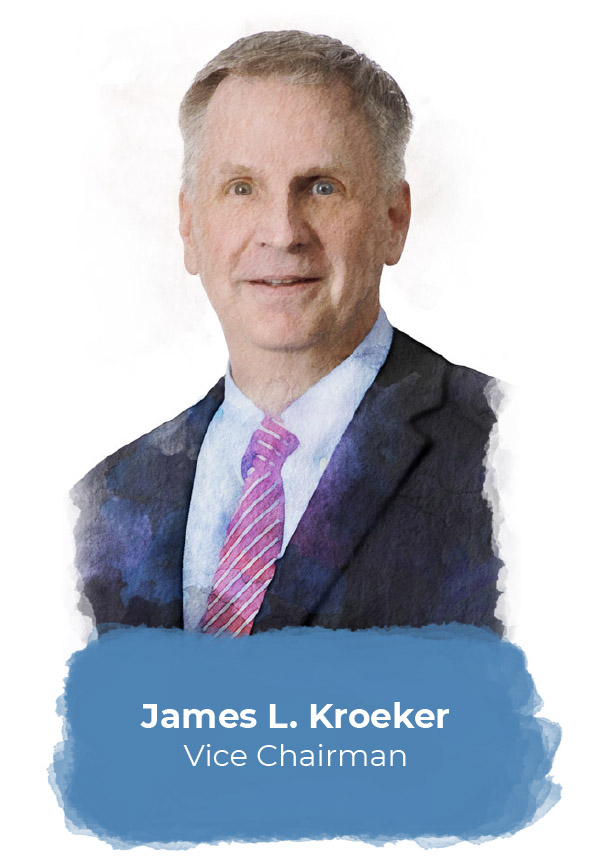
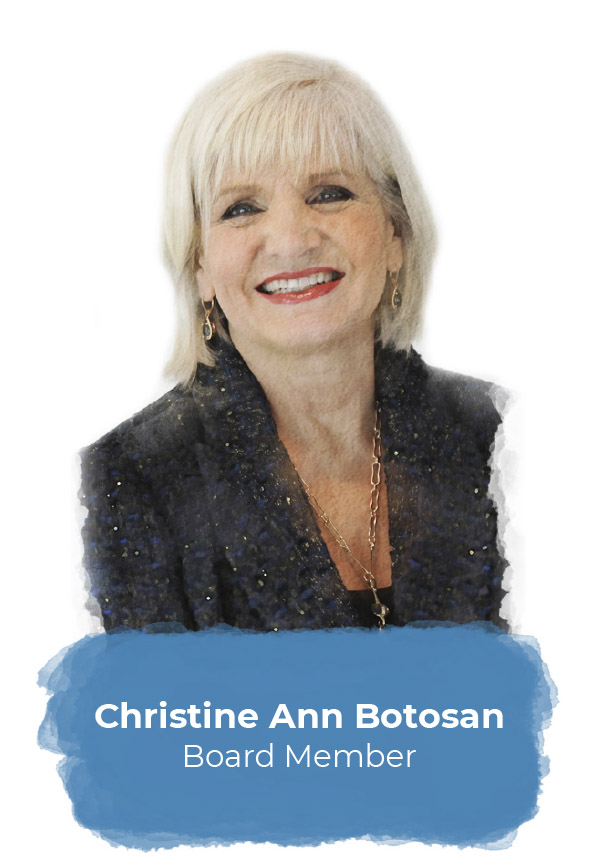


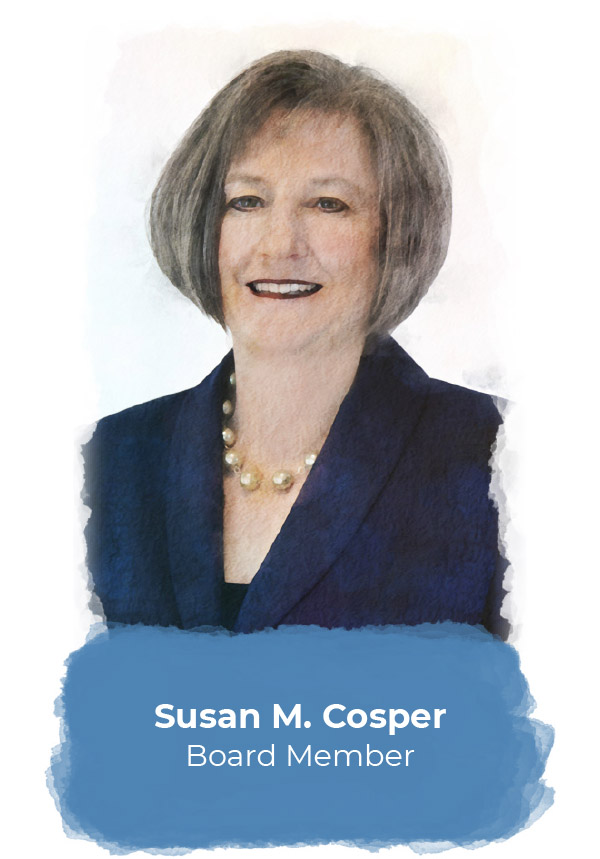
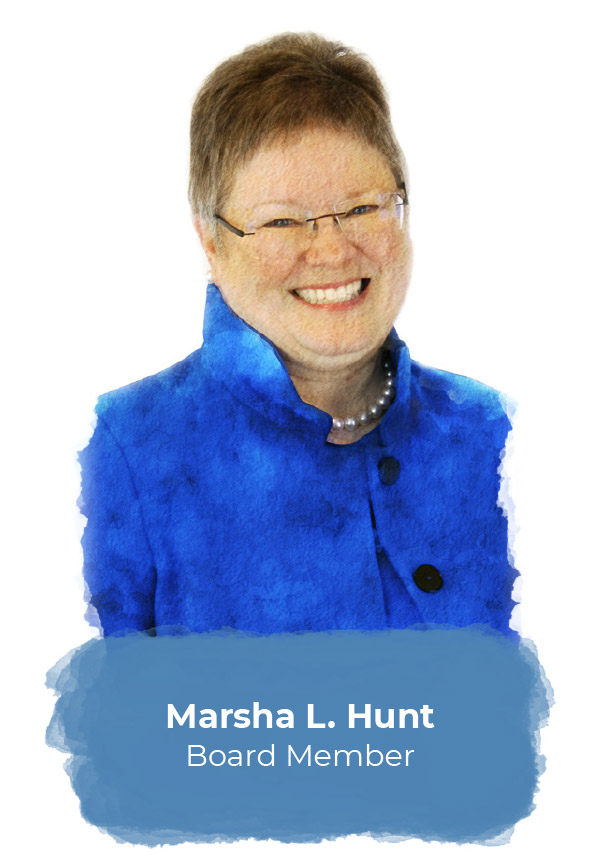
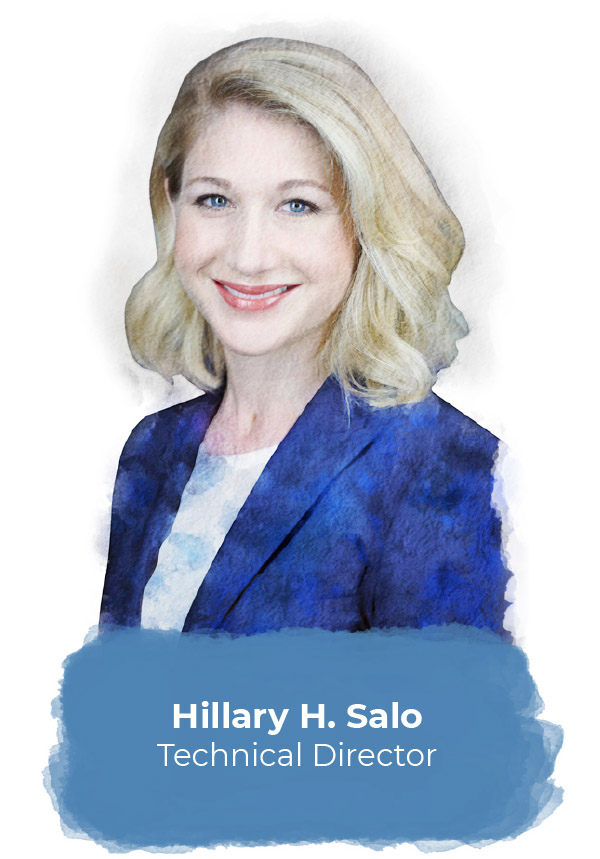
Members of the 
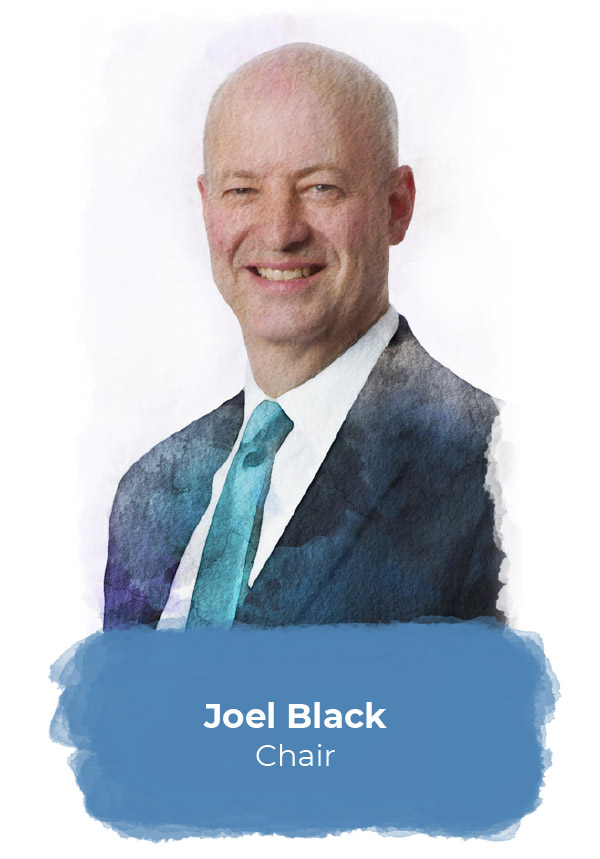

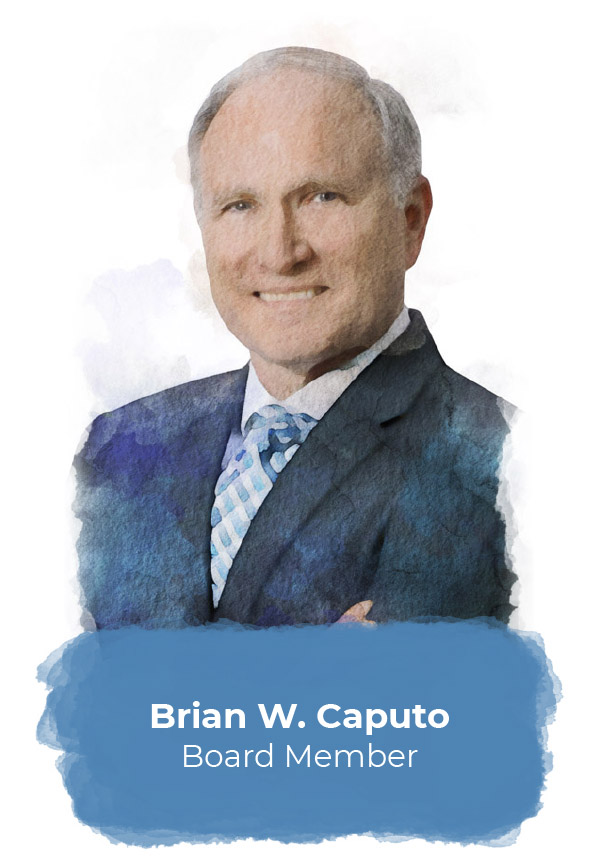
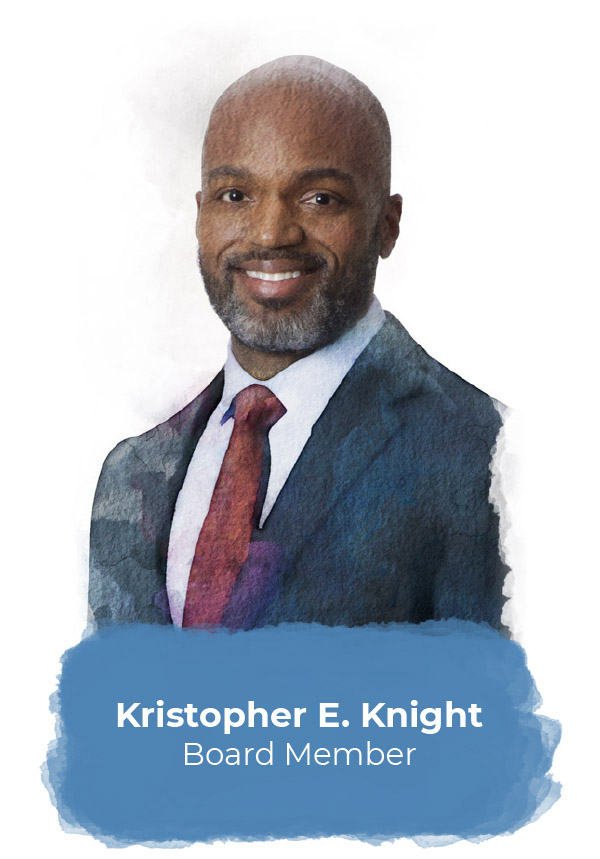
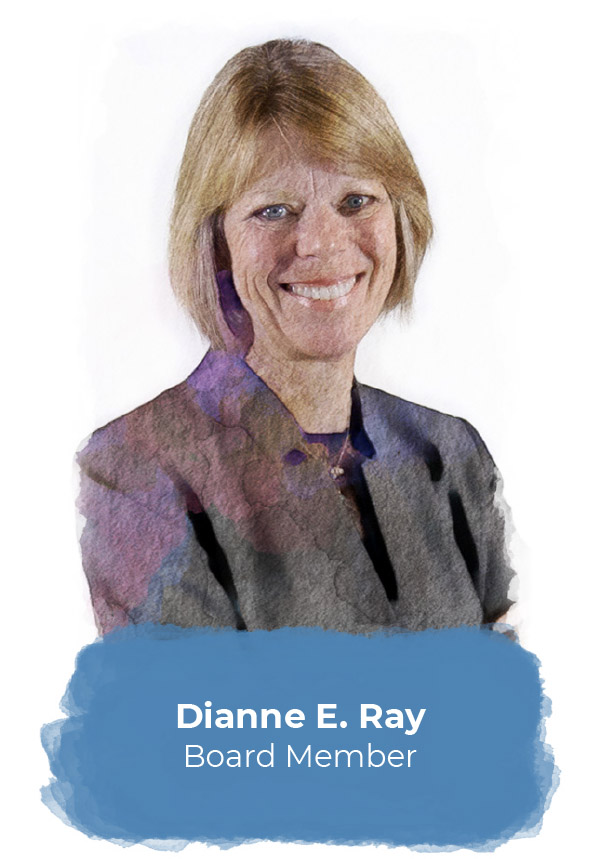
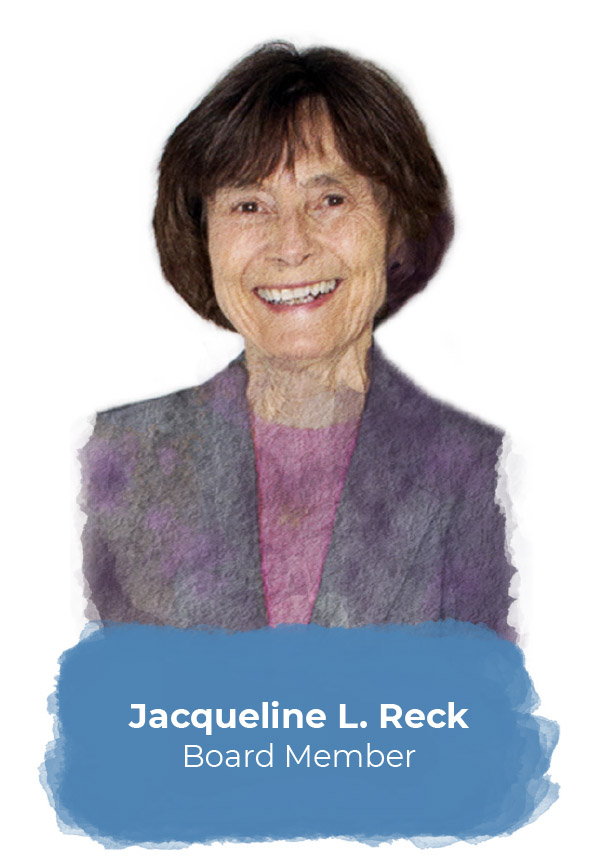

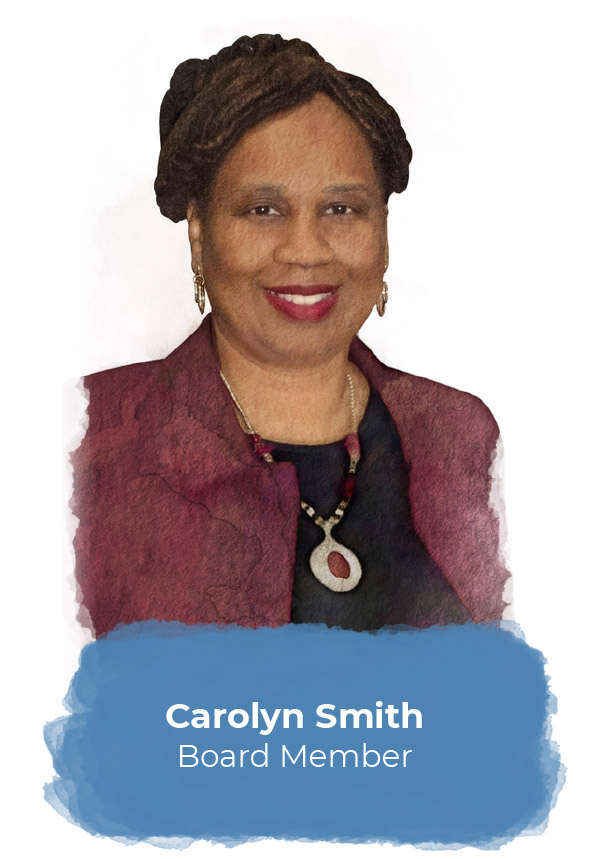
WELCOME
During the past year, the FAF Board of Trustees and the GASB welcomed the following leaders.
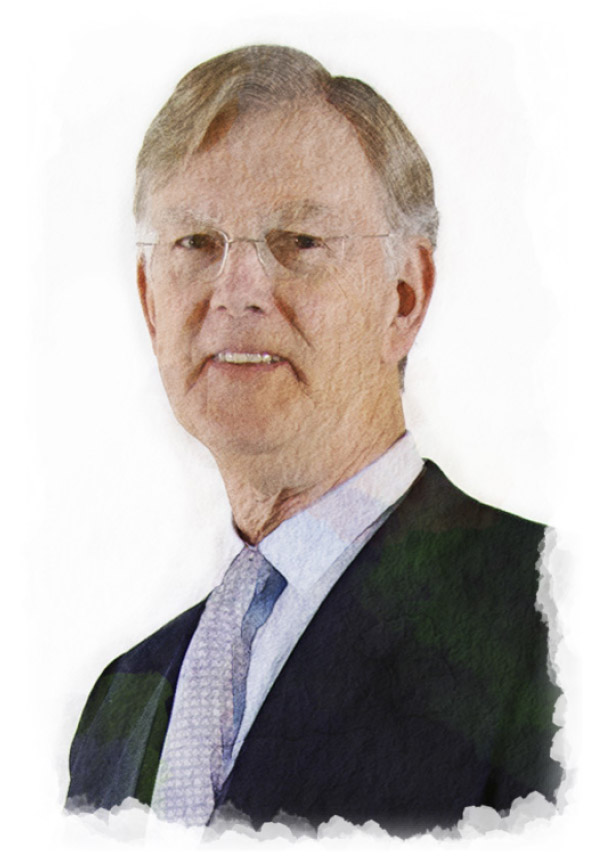
FAF
Joined January 2023
Edward C. Bernard
Director, LPL Financial Holdings, Inc.
Retired, Director, UTI Asset Management Company Ltd.

FAF
Joined January 2023
Marion M. Gee
Finance Director, Metropolitan St. Louis Sewer District

GASB
Joined July 2022
Jacqueline L. Reck
Robert Keith Professor, Lynn Pippenger School of Accountancy at the University of South Florida
THANK YOU
During the past year, the following FAF Trustees and GASB leaders concluded their work with us. On behalf of the entire organization, we thank them for their outstanding service.
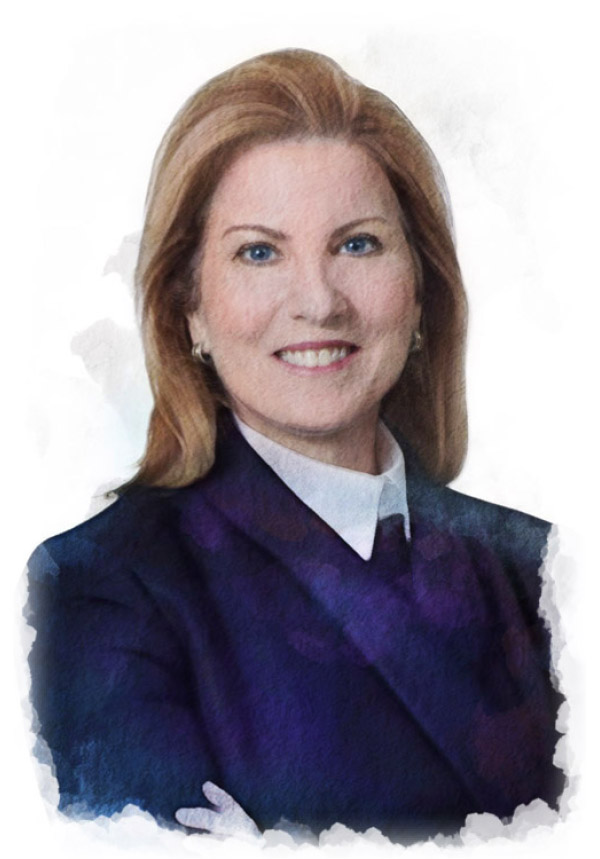
FAF
Completed service in December 2022
Kathleen L. Casey
Senior Advisor, Patomak Global Partners LLC

FAF
Completed service in December 2022
Jeffrey L. Esser
Executive Director Emeritus, Government Finance Officers Association

GASB
Completed service in June 2022
James E. Brown
Board Member, GASB


